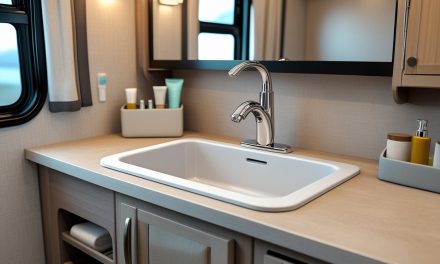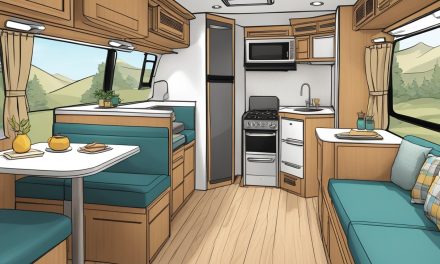Winterizing your RV is a hot topic among camping enthusiasts, especially as colder months approach. Whether you’re a full-time RVer or a seasonal traveler, protecting your rig from freezing temperatures is a must. We recently asked our newsletter subscribers, “What is your preferred method for winterizing your RV?”—and the responses were fascinating!
From DIY warriors to those who rely on professionals, the results showcase the diverse approaches RV owners take to prepare for winter. Don’t forget, if you haven’t voted yet, make sure to cast your ballot in our next poll so your voice can be heard in future results!
The Poll Results: How RVers Winterize
Here’s how our readers responded to the question:
| Winterization Method | Percentage of Votes |
|---|---|
| DIY | 57% |
| Professional service | 9% |
| Mobile RV tech | 13% |
| Not applicable (year-round use) | 21% |
Would you like to save this article?
DIY Dominates the Winterization Game
It’s no surprise that a whopping 57% of RVers prefer the DIY route when it comes to winterizing their rigs. Many owners take pride in handling maintenance themselves, saving money while ensuring the job is done right. With countless online tutorials and RV forums offering step-by-step guides, it’s easier than ever to tackle winterization without professional help. Plus, for frequent travelers who winterize multiple times a season, DIY is simply more convenient.
The Case for Professionals and Mobile Techs
While DIY reigns supreme, 22% of respondents still rely on experts—either through professional services (9%) or mobile RV techs (13%). Some RVers prefer the peace of mind that comes with hiring a pro, especially if they’re unfamiliar with plumbing systems or antifreeze procedures. Mobile RV techs, in particular, offer a great middle ground, bringing expertise directly to your campsite or storage location. For those short on time or confidence, this hands-off approach is a lifesaver.
Year-Round RVers Skip the Hassle
A notable 21% of voters said winterizing wasn’t applicable—likely because they either live in their RVs full-time or travel to warmer climates year-round. Snowbirds escaping winter altogether don’t have to worry about frozen pipes, making them the envy of cold-weather campers. Still, even year-round travelers should stay informed about winterization in case of unexpected temperature drops!
Why Did DIY Win by a Landslide?
Our theory? RV culture thrives on self-sufficiency. Many owners enjoy learning the ins and outs of their rigs, and winterization is a rite of passage. Additionally, the cost savings of DIY versus professional services make it an attractive option. That said, the rise of mobile RV techs suggests a growing demand for convenient, on-site solutions. As for the year-round crowd—well, who wouldn’t want to avoid winter altogether?
No matter your preferred method, one thing’s clear: protecting your RV from winter’s wrath is non-negotiable. Whether you’re a hands-on DIYer or prefer to leave it to the pros, the key is ensuring your rig stays in top shape for your next adventure.
What’s your winterization strategy? Drop a comment on our FAcebook Group or vote in our next poll to share your insights!







